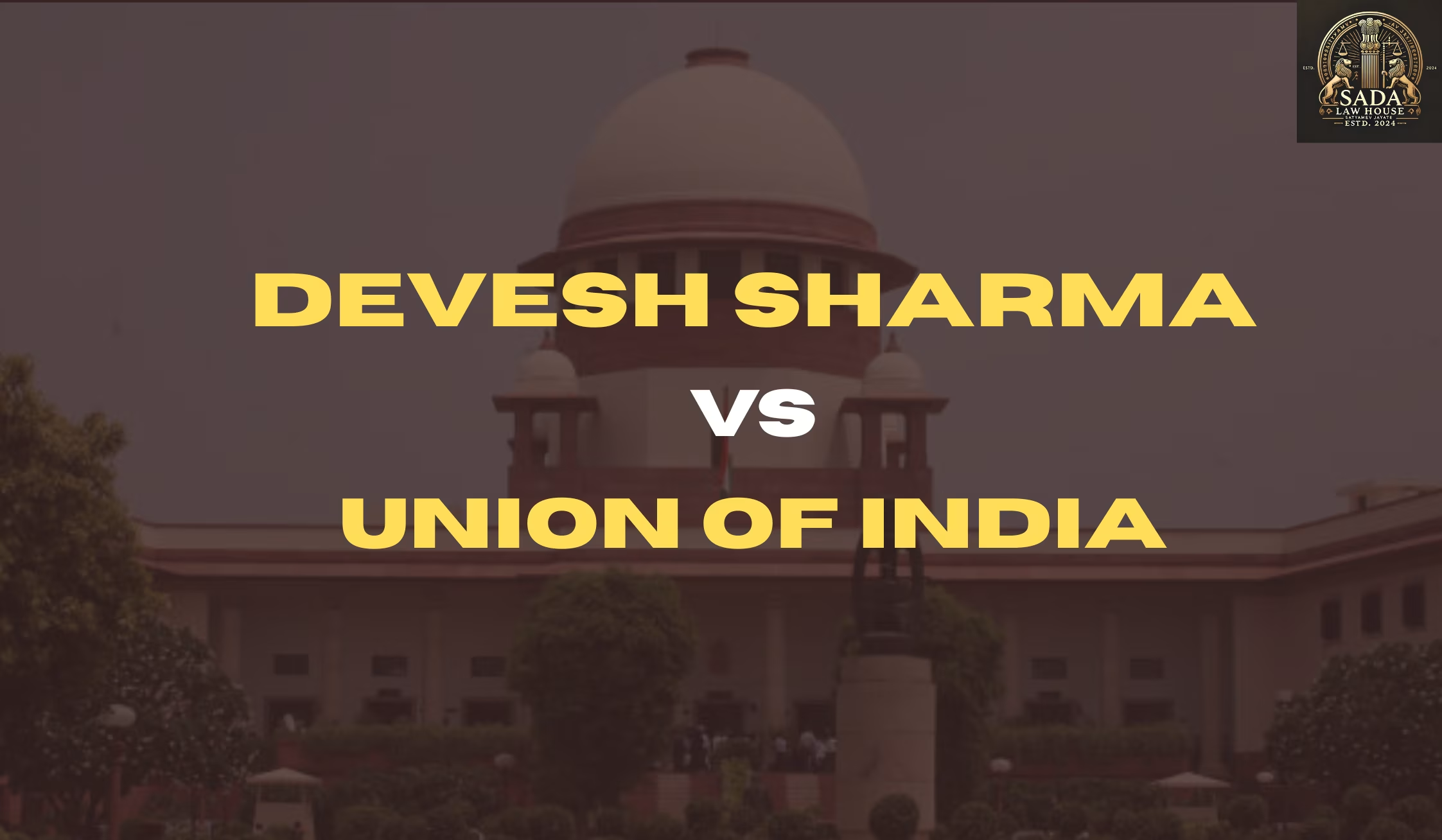Devesh Sharma v. Union of India (2023): Supreme Court Rules B.Ed. Holders Ineligible for Primary Teaching Posts
- REHA BHARGAV
- 08 June 2025

In Devesh Sharma v. Union of India, the Supreme Court held that a B.Ed. degree is not valid for primary school teacher posts (Classes I–V). The Court emphasized that the Right to Education includes the right to quality education delivered by appropriately trained educators.
Introduction
In Devesh Sharma v. Union of India, the Supreme Court of India examined whether a Bachelor of Education (B.Ed.) degree qualifies a candidate for the role of primary school teacher (Classes I to V), or whether only a Diploma in Elementary Education (D.El.Ed.) is valid under the law.
The issue arose after the National Council for Teacher Education (NCTE) issued a notification on 28 June 2018, expanding eligibility to include B.Ed. holders for primary teaching posts. Devesh Sharma, a B.Ed. degree holder, challenged this notification, seeking judicial validation of his eligibility for a primary school teaching position in Rajasthan.
Facts of the Case
The petitioner, Devesh Sharma, held a B.Ed. degree and applied for a teaching position for Classes I to V. However, according to the NCTE’s 2018 notification, the essential qualification was the D.El.Ed.—a diploma tailored specifically for elementary education.
Sharma challenged the notification, arguing that B.Ed. programs also include pedagogical training, and that many such degree holders had already been employed in primary schools. This conflict between qualification standards and past appointments led the matter to the Supreme Court for resolution.
Issue of the Case
Does a B.Ed. degree meet the eligibility criteria for appointment as a primary school teacher (Classes I to V), or is a D.El.Ed. mandatory under NCTE norms?
Petitioner’s Arguments:
The B.Ed. curriculum includes pedagogical methods suitable for teaching young children.
Excluding B.Ed. holders is arbitrary and discriminatory, especially given their history of employment in primary roles.
The NCTE’s decision undermines employment rights and lacks practical realism considering the scarcity of D.El.Ed. candidates in some regions.
Respondent’s Arguments:
The D.El.Ed. is the only valid qualification for primary education under the NCTE’s statutory powers.
B.Ed. programs are designed for secondary and higher secondary education, not elementary-level instruction.
Upholding D.El.Ed. as the exclusive qualification promotes specialized and age-appropriate training, ensuring quality foundational education under the Right of Children to Free and Compulsory Education Act, 2009.
Judgment
On 11 August 2023, the Supreme Court ruled in favor of the respondents, upholding the Rajasthan High Court’s judgment. Key takeaways:
Only D.El.Ed. holders are eligible for teaching Classes I to V. B.Ed. is not sufficient.
The 2018 NCTE notification was struck down for lacking proper academic consultation and being procedurally flawed.
The Right to Education (RTE) Act not only guarantees access but also ensures quality education, which requires appropriately trained teachers for young learners.
B.Ed. training is not structured for the developmental needs of children aged 6–10, while D.El.Ed. focuses specifically on this.
Clarification (8 April 2024):
The decision has prospective effect only.
Appointments of B.Ed. holders made before 11 August 2023 will remain valid.
Any appointments after that date without a D.El.Ed. will be considered invalid.
Conclusion
The Supreme Court’s ruling in Devesh Sharma v. Union of India clarifies a vital aspect of teacher qualification norms in India. By affirming that D.El.Ed. is the essential qualification for primary teaching, the Court reinforced the principle that educational quality must begin at the foundational level.
This verdict ensures that children in primary schools are taught by professionals specifically trained for early childhood education, aligning teacher qualifications with the developmental needs and learning capacities of young students.
Moreover, by giving the ruling prospective effect, the Court struck a balance between legal certainty and employment fairness, avoiding disruption for already employed B.Ed. teachers while preventing future violations.
Case Laws






